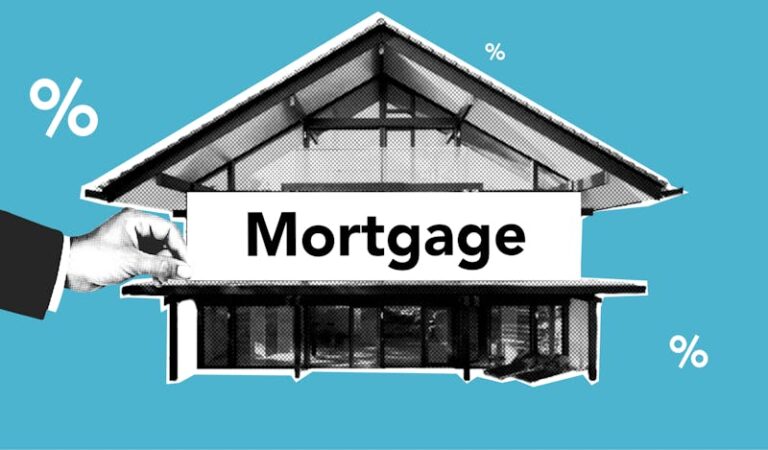Knowing the possible tax benefits associated with mortgage interest might result in considerable savings when it comes to homeownership in Canada. Many Canadian homeowners often wonder, “Can you claim mortgage interest on taxes in Canada?”
The answer, like most things related to taxes, depends on a few factors. Let’s get into the details to answer frequently asked questions and investigate how these advantages could be used in different situations.
Is Mortgage Interest Tax Deductible in Canada?
The good news: mortgage interest is generally tax-deductible across all provinces and territories in Canada. There may be slight variations depending on your specific situation, so it’s always wise to consult with a tax professional for personalized advice.
Owning a Rental Property? Here’s a Bonus!
In Canada, mortgage interest is fully tax-deductible if the property is used to generate investment income. This means that the property must be rented out and generate rental income for the entire year for you to be eligible to claim the deduction for mortgage interest. This tax benefit is particularly useful for property investors who seek to optimize their tax situation and reduce their overall taxable income through their investment properties.
If you’re a homeowner who rents out a portion of your property (a basement suite, anyone?), things get even more interesting. In this case, you can claim a portion of your mortgage interest, property taxes, and other related expenses as deductions on your rental income.
Claiming Mortgage Interest on Taxes for Business Use
When you use part of your home for business purposes, you can deduct a portion of your mortgage interest on your taxes in Canada. This deduction is based on the percentage of your home that is used for business activities. For example, if your home office or workspace occupies 10% of your home’s total space, then 10% of your mortgage interest could be tax-deductible.
This provision is particularly advantageous for those considering a Purchase Plus Improvement Mortgage, which allows borrowers to include the cost of home improvements in their mortgage. Such improvements could potentially increase the deductible amount if they expand or enhance the business-use area of the home.
Mortgage Interest Deductions for First-Time Home Buyers
For first-time home buyers in Canada, navigating the complex world of mortgages and taxes can be daunting. However, they should be aware that while the mortgage interest on a primary residence is generally not tax-deductible, there are other tax incentives available specifically designed to assist them. The Home Buyers’ Plan (HBP) allows first-time buyers to withdraw up to $35,000 from their Registered Retirement Savings Plans (RRSPs) to purchase or build a home without immediate tax penalties. Although this doesn’t include a deduction for mortgage interest, it significantly helps in managing the financial burden of acquiring a home.
Other Considerations
Expanding upon the necessity for meticulous record-keeping, taxpayers must understand that every claim they make could be scrutinized. Thus, maintaining a well-organized and comprehensive set of financial records can facilitate smoother interactions with the Canada Revenue Agency (CRA). This includes saving not only mortgage statements and receipts for home office expenses but also detailed logs of rental income and expenses, if applicable. Integrating detailed mortgage interest calculations in Canada into these records is particularly important. These calculations help clarify how much interest is paid annually and how it might be leveraged for tax deductions.
Such diligence not only simplifies the process of filing taxes but also ensures that you are prepared in the event of an audit. Moreover, leveraging professional tax advice is highly beneficial, particularly for those employing more complex strategies like the Smith Maneuver or for landlords balancing multiple properties. Tax professionals can provide insights into optimizing deductions based on your unique financial situation and current tax laws.
They can also help interpret the intricacies of mortgage interest calculations in Canada, forecasting the potential tax implications of purchasing additional properties or restructuring existing loans, ensuring that you make informed financial decisions that align with both your immediate and long-term goals.
Understanding Mortgage Rates in Canada
Understanding mortgage rates in Canada is crucial when considering the tax implications of mortgage interest. These rates significantly influence borrowing costs and potential tax deductions. Influenced by factors like inflation, global economic conditions, and Bank of Canada policies, mortgage rates and terms vary between fixed and variable options.
Fixed rates offer stability, as they remain unchanged throughout the mortgage term, aiding homeowners in financial planning and forecasting deductible amounts. Variable rates, however, can fluctuate with market conditions, impacting the interest paid and its tax implications.
For those navigating mortgage interest deductions, grasping these rates is vital. They affect monthly payments and the total interest over the mortgage’s life, influencing potential tax deductions and financial decision-making.
Conclusion
Is mortgage interest tax deductible in Canada? It can be, under certain conditions. Homeowners can write off mortgage interest primarily if the property generates rental income or is used for business purposes. While first-time home buyers cannot claim this deduction for their primary residence, they have access to beneficial schemes like the Home Buyers’ Plan.
Navigating these deductions effectively requires diligent record-keeping and an understanding of mortgage rates. Consulting with a tax professional is essential to maximize potential tax benefits and ensure financial decisions support both short-term needs and long-term goals.
FAQs
Is mortgage interest tax deductible in Canada?
Yes, mortgage interest is generally tax-deductible across all provinces and territories.
Can you write off mortgage interest in Canada?
Absolutely. Mortgage interest can be claimed as a tax deduction in Canada, subject to certain conditions and eligibility criteria.
Is mortgage interest tax-deductible in Ontario?
Yes, mortgage interest is tax-deductible in Ontario, along with other provinces and territories in Canada.
What is a mortgage interest tax deduction?
A mortgage interest tax deduction allows homeowners to deduct the interest paid on their mortgage loan from their taxable income, resulting in potential tax savings.
How does the mortgage interest tax deduction work?
The mortgage interest tax deduction enables homeowners to reduce their taxable income by the amount of interest paid on their mortgage loan, thus lowering their overall tax liability.
What are the conditions for claiming mortgage interest tax deductions?
In general, the property must be utilized to generate money — such as rental income or commercial purposes — to be eligible for mortgage interest tax deductions. Furthermore, particular qualifying requirements depending on unique circumstances can exist; therefore, it’s best to get tailored counsel from a tax professional.



